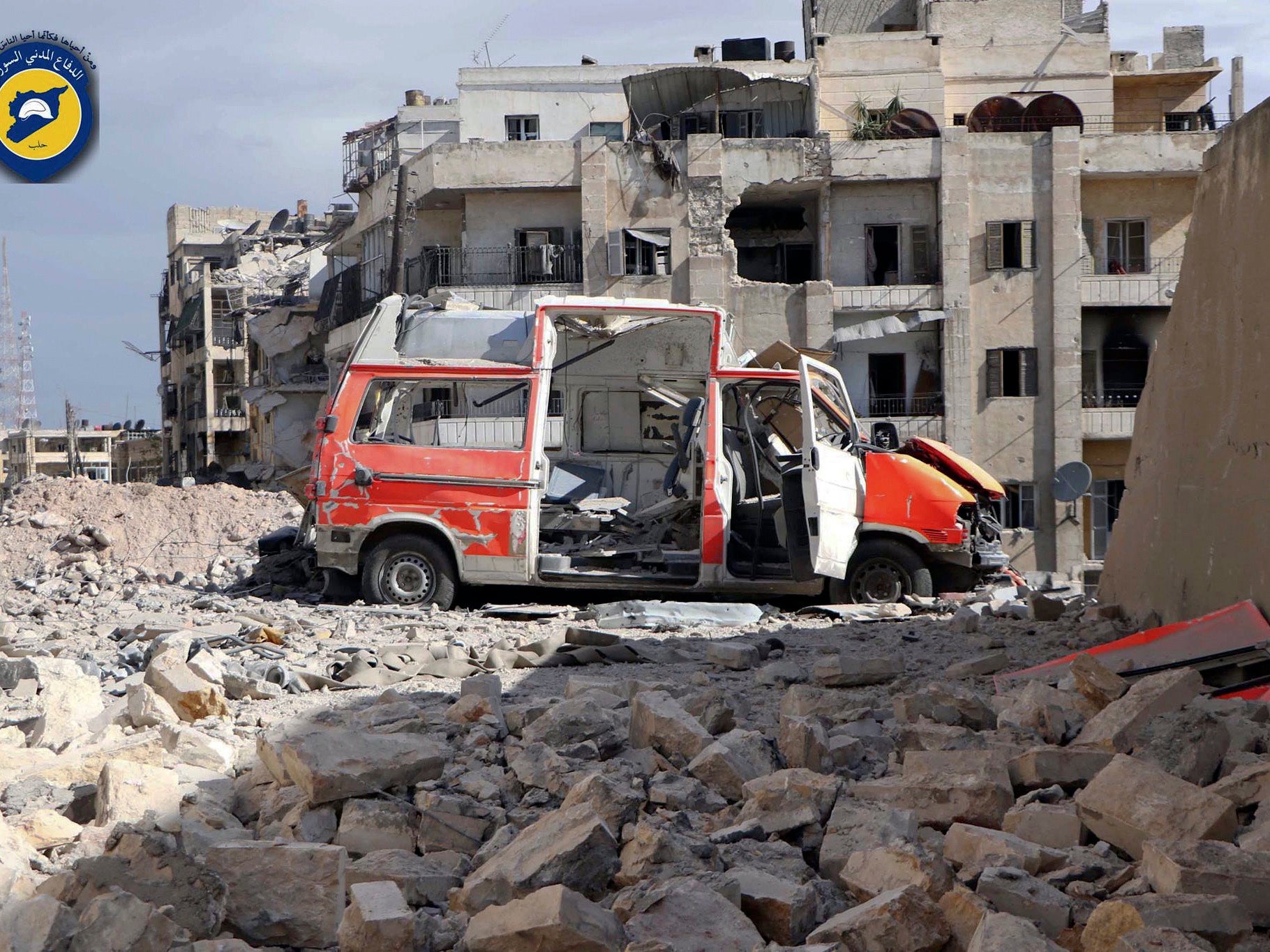Russia must change its stance on Syria, for the good of us all
Russia is presently part of the problem – but, if it is so willing, it could be part of the solution

A British prime minister once remarked, rather notoriously, that the UK ought not to become embroiled in a quarrel in a faraway country between people of whom we knew nothing. It is a sentiment that echoes down the decades to today.
It certainly applies to the complicated factions presently razing the once beautiful nation of Syria. The web of coalitions between shifting and unreliable sets of allies defies the understanding of even the most seasoned observers.
Despite the fact that the war in Syria has provoked the largest movement across Europe since the close of the Second World War, despite the suffering we witness daily in the media, despite the near-genocide practised by some of the groups, we still know very little about what these different peoples believe and want. Evidently, few are set on peace.
Is the lesson of our recent interventions in the Arab world, usually disastrous, that we should scale back our involvement in Syria, limited as it is to aerial action; or to push on against so-called Islamic State? And, in that case, should the Western powers ally themselves with the Russians, or shun them and treat them as a gang of war criminals?
There is no right answer to this. In their debate in Parliament, MPs demonstrated that they too have no more ready a solution to all this than anyone else, including the superpowers. The best worst hope was that the accord between America and Russia brokered by John Kerry and Sergey Lavrov a few weeks ago would hold for long enough to persuade the non-Isis elements to believe that a ceasefire and later moves to peaceful settlement would not simply leave them at the mercy of the Assad government.
For while the likes of the al-Nusra Front, now rebranded as Jabah Fateh al-Sham, and a semi-detached affiliate of Al-Qaeda, would be content to see Isis removed from the field, they are also only too well aware that, without Isis, there would be no “coalition” worth the name to stand against President Bashar al-Assad. President Assad is often portrayed as the lesser of the many evils overshadowing his nation, yet this is a man who has gassed his own people and, it appears, allowed the Russians to bomb a humanitarian relief convoy outside Aleppo – which ended the ceasefire.
For diplomacy as well as a military stabilisation and pushback of Isis, the central problem is Russia’s pointlessly aggressive and unpredictable stance. It was it, after all, who broke its own ceasefire, and smashed any chance of an end to this pitiless conflict. President Putin’s government seems to take a perverse pride in its ability to stomach human suffering on a vast scale, as if it was reliving – but only by proxy – its own suffering in the Great Patriotic War against Hitlerism.
As Andrew Mitchell, the former international development secretary and a voice of conscience in this debate, has pointed out, the Russians in their bombing of civilians have committed a war crime as plainly as the Germans did when they destroyed Guernica in the Spanish civil war, in one of the first demonstrations of the terror of mass aerial bombing. In Syria, almost all the combatants and their international allies have an aspect of 1930s fascism about them.
Russia, then, is part of the problem. As the patrons and protectors of President Assad’s power it could be part of a solution, of sorts, or at least a gradual wind-down in the cycle of terror and violence. As it is, it is pursuing its own interests, though, apart from looking after an old client dictator family of theirs, these remain obscure.
The Russians too have some lessons to learn from history, not least their bloody and futile struggle to occupy Afghanistan for a decade in the 1980s. They can bomb Syria as much as they like, but they will not be able to stop Isis, Jabah Fateh al-Sham and the other rebels eventually pushing Assad out of power, or at least depriving him of any authority much beyond the precincts of the presidential palace in Damascus. Russia will not profit from its policy.
The British prime minister who made the notorious remark about a “far away people” was of course Neville Chamberlain, excusing British cowardice of Hitler’s takeover of central Europe. Less well remembered was his later admonition in that same radio address: “War is a fearful thing, and we must be very clear before we embark on it, that it is really the great issues that are at stake.”
The great issues in Syria, for the West and for Russia – the need to defeat the radical nihilistic Islamists perverting their own religion and terrorising the world, and an appalling humanitarian crisis – are as great and as urgent as ever. Divided, Russia and the West will certainly lose, but not as much as the people of Syria.

Join our commenting forum
Join thought-provoking conversations, follow other Independent readers and see their replies